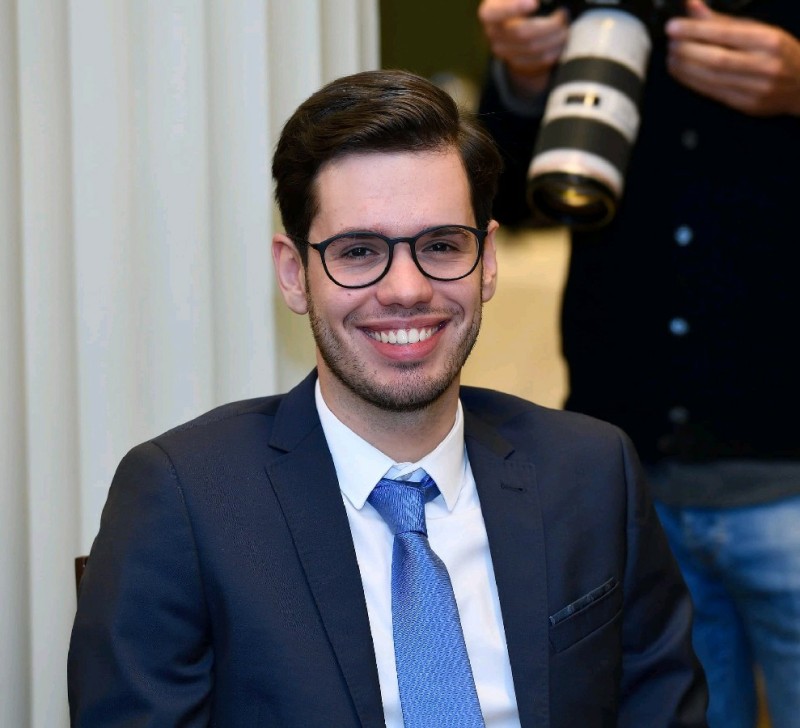Language
English
Tuition fees*
Nacional: 1500€
International: 5000€
CPLP International: 2750€
Schedule
Mainly daytime programme
Duration
2 years
Applications
2nd call: 19/08/2025 until 25/08/2025 (only if there are leftover vacancies)
Beginning of the programme
September
* Tuition fees for the academic year 2025/26 (Full Tuition Fee). More information here.
- rigorous teaching and procedures coupled with a flexible plan of studies, ensuring improved knowledge of core economics while allowing for diversified specializations in applied courses. The design of each student’s study plan follows these guidelines;
- possibility of choice between English track and Portuguese track, and possibility of enrolling in the prestigious QTEM – Quantitative Techniques in Economics and Management – international programme;
- quality and experience of faculty, research centres and supportive professional staff;
- availability of information resources – bibliographic and data bases – required to conduct research;
- individual tutoring in the definition of the plan of studies and in the dissertation or internship report work;
- professional orientation and career planning counselling services;
- a series of seminars with topics and speakers (outside FEP) that enable the bridge between academia and private and public organizations in the market place;
- structured programme of curricular internships, with institutions dedicated to economic analysis and other private and public organizations that provide challenging opportunities to engage in a first work experience.
Anabela Carneiro
Director of the Master in Economics
Masters > Master in Economics
Target group
The Master in Economics is a pre-experience Master that offers high-quality education in economics as well as on quantitative methods and techniques for economic evaluation. The programme is designed to recent graduates in Economics, Management, Finance or related fields.
Student profile

Data related to students enrolled in the 2024/2025 academic year.
Masters > Master in Economics
Career Opportunities
Master in Economics students are trained to pursue demanding professional or academic careers in public or private, national or international institutions, such as:
- Financial institutions
- Regulatory entities
- Auditing and consulting entities
- Non-financial companies
- Government institutions
- Economic and financial international organizations
- Non-governmental organizations
- Teaching and research institutions, etc.
Masters > Master in Economics
Rankings
The Master in Economics ranks in the 19th place in the Eduniversal Masters Ranking 2024 of the best programmes in Economics in Western Europe.
Masters > Master in Economics
Testimonials
“The Master in Economics at FEP was the obvious choice for me not only because of the recognized excellence of the Faculty, but also because the Master allows each student to personalize his/her pathway according to the areas of personal interest. Additionally, as a student of the ME, I applied to the QTEM programme, which was definitely a plus due to its international exposure. Overall, my academic journey as a Master student at FEP integrated in the QTEM gave me a broader understanding of Economics while also preparing me to face future professional challenges, since throughout these two years I could explore different subjects under various perspectives while also acquiring important quantitative tools, which are key in today’s world.”
“The Master in Economics (ME) is a program that has two points that for me were very important: the flexibility in choosing the plan of studies and the recognized quality of the contents taught. The first point is important because it allows the choice of a path that is adjusted to an entry in a more specialized environment, in business or academia, according to the given personal objectives. The second point guarantees the quality of training regardless of choice. In my case, contact with specialized curricular units in the area of economics motivated me to pursue my studies and enroll in the PhD in Economics. In addition, the demanding environment I experienced and the quality of knowledge acquired in the ME facilitated the adaptation to an academic degree of greater difficulty.”
“I chose the Master’s in Economics at FEP mostly because of the opportunity to build my own path. I did not regret, as I managed to significantly improve my knowledge on those fields. The professionalism and excellence of the professors was equally important during my journey, to develop the necessary theoretical and practical skills for the job market or for future academic challenges. Having enrolled in the PhD in Economics immediately after completing the Master, I realized the importance and the quality of both mandatory and optional courses. I am truly honored to have been a student of the Master´s in Economics at FEP and I recommend it to anyone interested in learning more about this fascinating science.”






